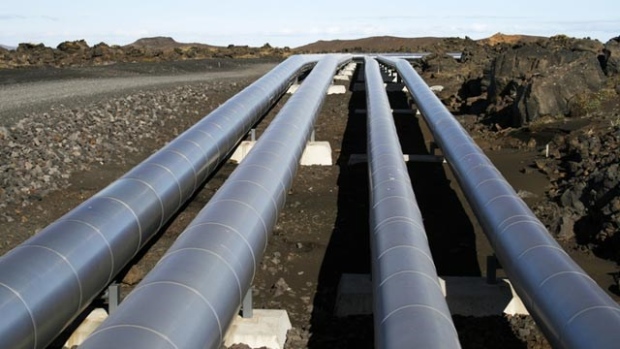Mar 3, 2016
A country divided: How pipeline politics risk 'insidious' economic pain for Canada

ANALYSIS: Canadian anti-pipeline activists could have more in common with American supporters of Donald Trump than they might realize.
The candidacy of the bombastic billionaire south of the border is dividing voters in the United States into extremes and drowning out many in the more moderate political middle ground. Likewise, Canada’s increasingly contentious pipeline debate is rapidly devolving into a zero-sum game of “us” versus “them”.
“Trump is tapping into anger and ignorance and that is similar to those advancing anti-pipeline arguments,” Todd Hirsch, chief economist with ATB Financial, told BNN this week. “Those people are angry and ill-informed and increasingly unable to rationalize.”
Gaétan Caron agrees Canadians are “losing our ability as a nation to talk in a level headed way, in a respectful way towards the difficult choices we have to make.”
The executive fellow with the University of Calgary’s School of Public Policy, who served as chairman and CEO of Canada’s National Energy Board for nearly seven years until mid-2014, said future generations may fault present-day Canadians for squandering their economic fortunes by allowing political waffling to prevent any new pipelines from transporting Alberta oil to global markets.
“Paralyzing the development of necessary infrastructure on account of differences will create a difficult future for our children and our grandchildren,” Caron, himself a grandfather, said via telephone. “We will be deprived of the economic conditions to pay for hospitals and good education. We will have lost the money necessary to invest in good environmental technology and bring down emissions. [We will have] deficits growing provincially and nationally and eventually we will need to raise taxes and scale back social services.”
“That is what I am concerned about,” Caron said, “that is against the economic condition of the principles of sustainability.”
“Sustainable development” is often bandied about as a reason to block any new pipelines from being built; the argument being any development allowing more carbon emission-growing crude oil to be extracted cannot possibly be sustainable. Yet those who first coined the term – the authors of the Brundtland Commission Report presented to the United Nations in 1987 – have a very different definition.
“Sustainable development is development that meets the needs of the present without compromising the ability of future generations to meet their own needs,” an excerpt from the report reads, “environment and development are not separate challenges; they are inexorably linked.”
It was true a generation ago when it was written and remains incredibly salient today. In fact, Prime Minister Justin Trudeau has often repeated a version of the last line, consistently responding to questions about his views on any given pipeline proposal by stressing the need to balance economic and environmental considerations.
Quebec Premier Philippe Couillard stressed his decision to seek an injunction against Calgary-based TransCanada (TRP.TO) over its proposed $15-billion Energy East pipeline – which would transport Alberta oil sands bitumen to refining hubs in Quebec that currently rely on higher-priced foreign crude – was not about “east versus west.” It was simply a matter of ensuring the laws of his province are respected, Couillard told reporters in Vancouver.
The National Energy Board released a “constrained case” scenario last month, noting that if none of the currently proposed oil sands pipelines win approval it will lead to “reliance on a more costly form of transportation such as rail, as well as increased competition for market share and pipeline capacity, leading to lower prices received by Canadian producers.”
For Alberta, which is already facing its most extreme recession since the early 1980s, the injunction from Quebec amounts to kicking them while they’re down; regardless of whether the move itself is reasonable.
“Even the sound of the word ‘injunction’ sounds political and sounds like they are trying to block the pipeline,” said ATB’s Hirsch. “[Without any new pipelines] there is no question investment would dry up… things will cap off pretty quickly and we will have to find other ways to grow our economy.”
The economic impacts of the NEB’s so-called constrained pipeline case will be “insidious over a period of many years,” Vermilion Energy CEO Anthony Marino told BNN earlier this week. “[There will be] lower economic activity, less opportunity, less quality of life [and] lower government services if these projects do not proceed.”
Caron fears Canada has “become a nation ashamed of the richness of our natural resources.” The politics at play with Quebec’s demand for an injunction are clear, especially in light of the province’s decision to skip the public environmental assessment process for a $1.1-billion cement plant in the Gaspé Peninsula while simultaneously insisting on its right to hold a parallel review of Energy East to the yet-to-begin 27-month NEB process.
“There is not one country in the world that would not find a way to get a pipeline built if they had a resource to export,” said Hirsch. “Nobody is preventing us from doing this except ourselves.”



